See, Test and Treat provides free cancer screenings for 60 women
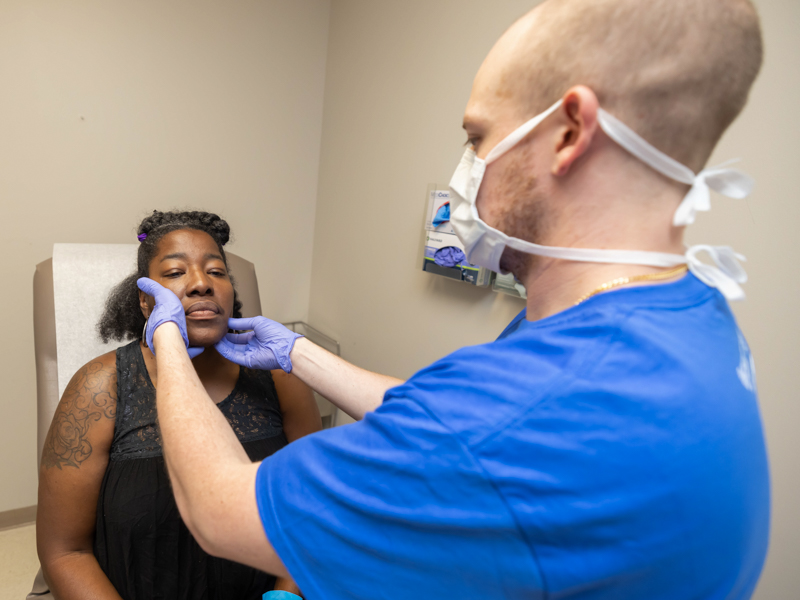
With Rebekah Wingard’s extensive family history of at least five types of cancer, she was relieved to learn she could get free screenings for three of them at the See, Test and Treat program Saturday.
Held at the UMMC Cancer Center Research Institute clinics at the Jackson Medical Mall’s Thad Cochran Center, the annual program offers free mammograms, cervical and oral cancer screenings to women who qualify. Women received their results the same day, and those with positive screenings were connected to resources for follow-up care.
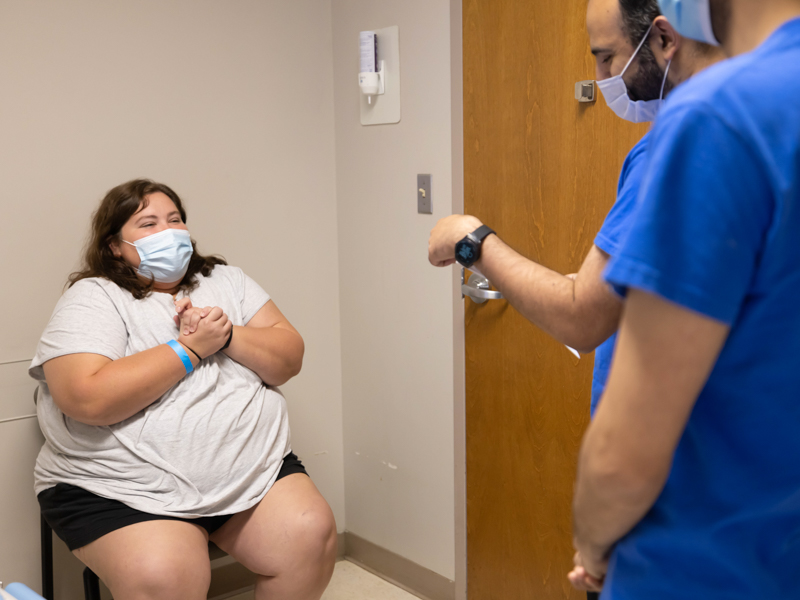
“After my mom told me there was so much cancer that ran in our family, of course you worry,” said Wingard, a 29-year-old student at Belhaven University. “But having those negative results come back makes me feel good. If something is wrong, you want to take care of it. You don’t want it to get any worse.”
Wingard was one of the first of 60 women to arrive around 8 a.m., and after getting what she calls the “blanket” screening of three tests, she received the last of her results – the cervical exam.
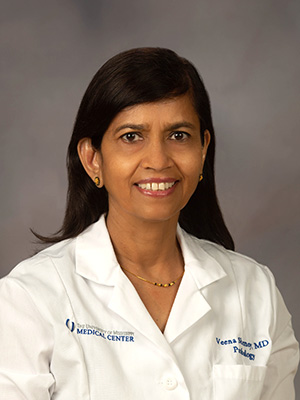
Dr. Veena Shenoy, professor of pathology who leads the team that provides Pap test results, said they are able to process the exams and give patients their results in about two hours.
“When I leave here, I’m gonna get right on the phone and call my mom and tell her the good news,” said Wingard. “I would love to have kids one day, so having this screening was very important to me.”
Bethany Sabins, a nurse practitioner in obstetrics and gynecology who helps organize the Pap tests, stressed that cervical cancer is preventable if caught early.
“If the time I spend volunteering helps prevent even one woman from getting cervical cancer, then it is time well spent for me,” said Sabins. “Continuing to grow the program and figure out how we can reach more people is a goal of ours.”
The College of American Pathologists Foundation created SST, which has programs across the country, 10 years ago. The UMMC Cancer Center and the Department of Pathology have sponsored the program since 2017. Because of COVID, there was no screening in 2020, and the 2021 event was postponed until April.
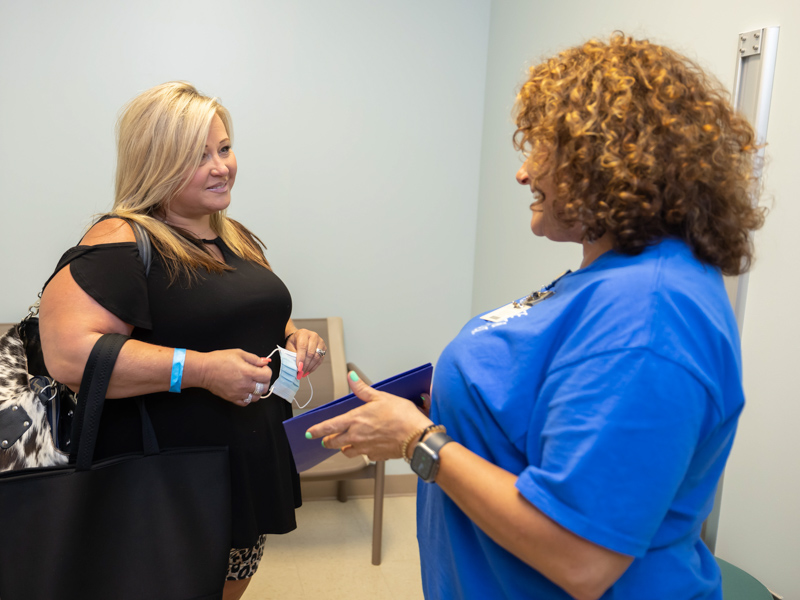
Teresa Kemp first took advantage of the program three years ago.
“After my first mammogram, I had a spot that they wanted to look at again, and everything was fine,” said the Pearl resident. “My mom has had some nodules removed that ended up being non-cancerous, so I just kind of want to keep a look on it. You can’t feel everything yourself.”
Dr. Susan Shamburger, associate professor of radiology who helps with the mammogram screenings every year, said the exams find cancers before they are clinically evident.
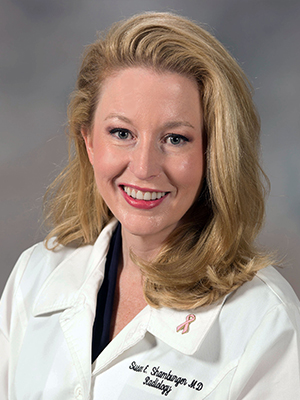
“That means we find them before you can feel them or know that they are there otherwise,” said Shamburger. “When we can find a cancer that small, there is a near 100 percent cure rate. That makes a huge difference in the life of a single patient, their family, and their community.”
Michelle Wilson, of Jackson, came at her daughter’s insistence that they get screened together. They felt a sense of urgency this year because her niece recently died of cancer.
“She had developed jaundice and went to see her doctor to see what was going on,” Wilson said of her niece, whose doctor rushed her to the hospital. “The cancer had completely gone through her body. After about two weeks, she was gone.”
Wilson, who came for a mammogram, was also screened for oral cancer, which consists of a head and neck exam, and a review of a patient’s medical and social history, said Dr. Soheil Vahdani, assistant professor in the Division of Oral-Maxillofacial Oncology and Microvascular Reconstructive Surgery in the Department of Oral-Maxillofacial Surgery and Pathology.
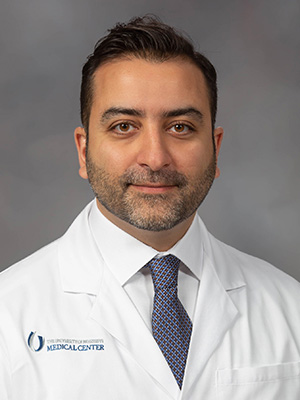
“If a patient has a suspicious lesion, a biopsy can be performed or scheduled and results can usually be discussed with the patient within two weeks,” said Vahdani.
Oral cancer can be caught early with regular dental or oral exams, said Vahdani. Though some patients experience pain, numbness, and difficulty with eating or swallowing, many are asymptomatic until the cancer is more advanced.
At least three cancers have been confirmed after follow-up diagnostic testing since the inception of UMMC’s event; because women are not required to share any follow-up results, there may be more.
Sabins said she is grateful the CAP Foundation continues to choose UMMC as a site for the program.
Said Shenoy: “I have both happy and sad feelings associated with this. Happy because early detection increases the likelihood of curative treatment but sad because a woman’s bank balance should not preclude her from access to care.”


